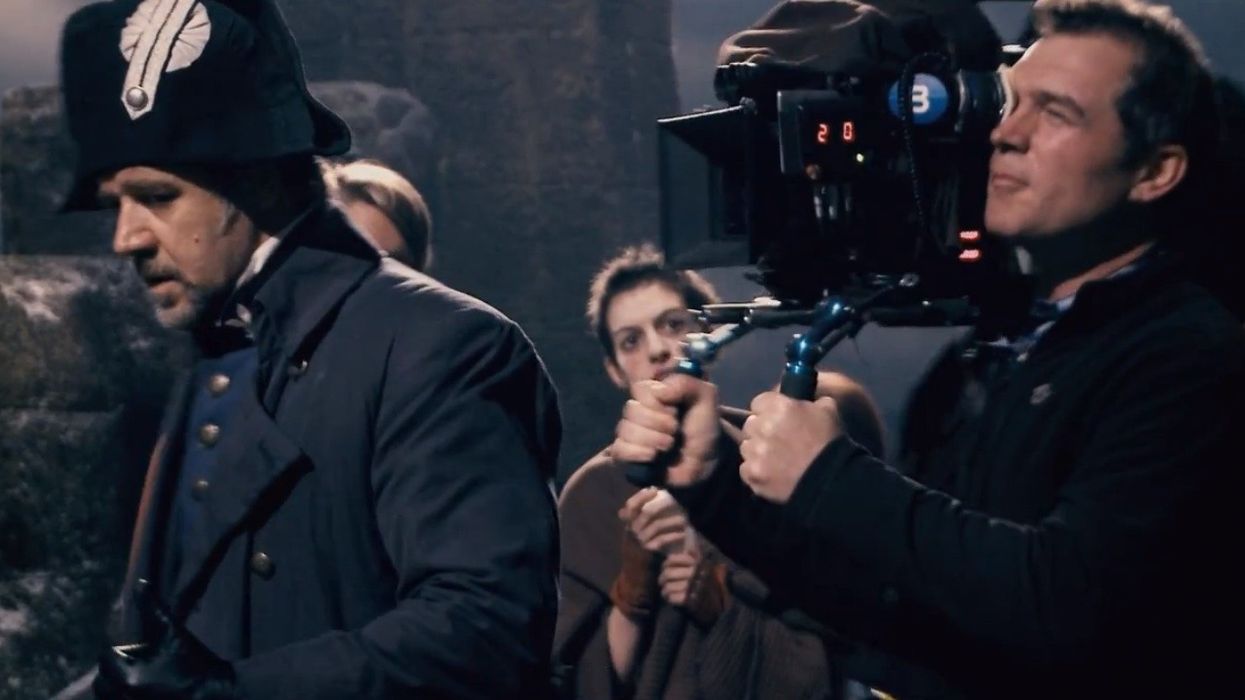Reinventing the Movie Musical: Recording Live Performances with Tom Hooper's 'Les Misérables'

Academy Award wining director Tom Hooper (The King's Speech) is taking an untraditional approach to making a movie musical with his new film, Les Misérables. While musicals will typically go into a sound studio months before to record the singing, Hooper has decided to have his actors actually sing on set, and use that audio the same way one might use recorded dialogue. Click through for a behind-the-scenes look at the film and an explanation of the technique.
Most of you will probably never be in this position in your filmmaking careers, but it's definitely an approach that applies to other areas as well. Getting something on set will more often than not yield more interesting results that will be different from take to take, whereas doing something in post is much more static. It's interesting to hear Hugh Jackman talk about being able to change his performance to however he was feeling. This is something that would be impossible to do if it was recorded before.
Live performances (whether singing or dialogue), also have a more realistic quality to them. Something done in a studio typically has a certain sound to it, and it can be "too perfect," which is one of the things that can often give away dialogue as being ADR. The more you can get cleanly on set, the more engaged an audience will usually be to what they are hearing, because the performance matches the voice perfectly. An interesting approach if you have no other choice could be to go back to the same exact location to re-record dialogue. It's not perfect, but if you don't have a professional team of people working on audio, it can be the cheapest way to get a realistic result.
While this is yet another remake of Les Misérables, it's good to see a director at the top of his game trying something different.
What do you guys think?













